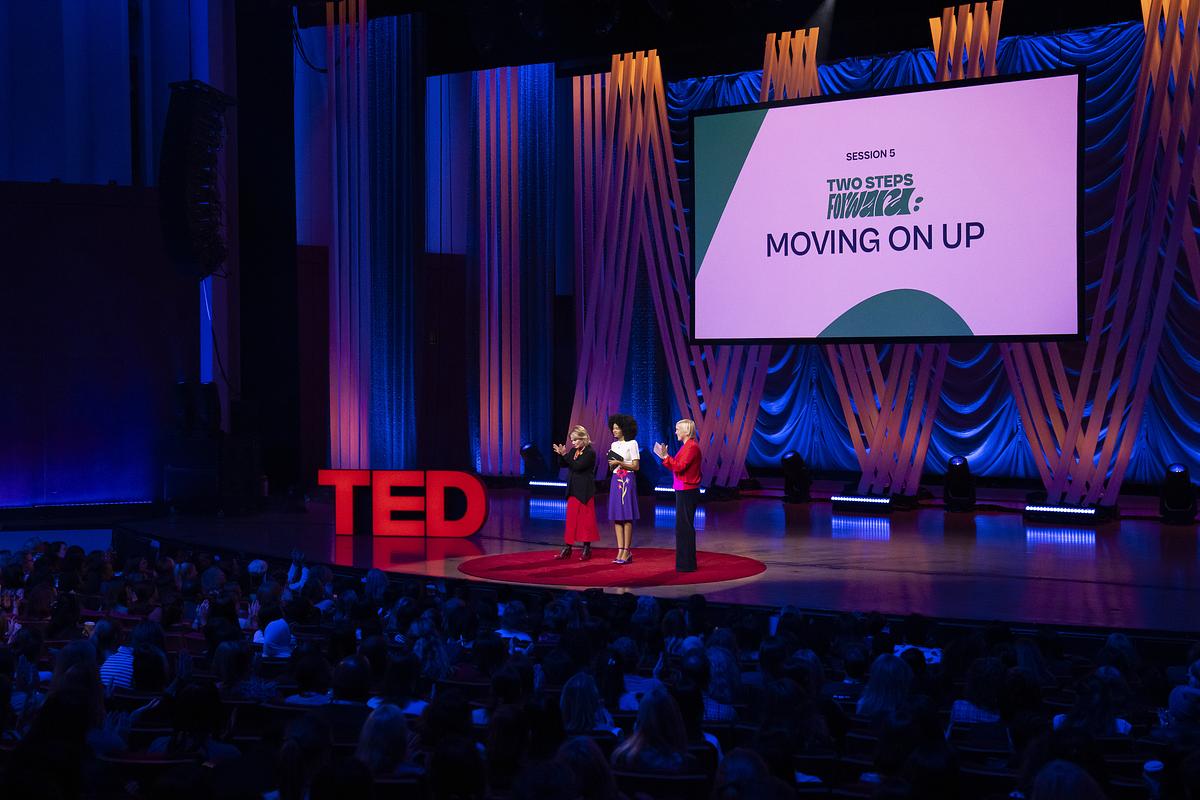
Activist, filmmaker and entrepreneur Maya Penn, TEDWomen editorial director Pat Mitchell and TED’s head of curation Helen Walters host Session 5 of TEDWomen 2023: Two Steps Forward on October 13, 2023, in Atlanta, GA. (Photo: Gilberto Tadday / TED)
For the final day of TEDWomen 2023 in Atlanta, Georgia, a multidisciplinary group of experts took on the challenges and opportunities of navigating change — from reimagining migration for political power and addressing the real threats of AI to championing inclusivity, celebrating nature’s wildness and pondering life’s myriad complexities through art.
The event: Sessions 4 and 5 of TEDWomen 2023, hosted by TEDWomen editorial director Pat Mitchell, TED’s head of curation Helen Walters and activist, filmmaker and entrepreneur Maya Penn
When and where: Friday, October 13, 2023, at the Woodruff Arts Center in Atlanta, Georgia
Speakers: Charles M. Blow, Sasha Luccioni, Ruha Benjamin, Melonie D. Parker, Sherrell Dorsey, Mary Ann Sieghart, Dyhia Belhabib, Rebecca McMackin, Lucy McBath, Valerie Montgomery Rice, Maira Kalman, Freada Kapor Klein, Sheila Ngozi Oparaocha, Chantale Zuzi Leader

Darkwave artist Abra performs at Session 5 of TEDWomen 2023: Two Steps Forward on October 13, 2023, in Atlanta, GA. (Photo: Gilberto Tadday / TED)
Music: Darkwave artist Abra captivated the TEDWomen audience with her signature blend of gothic, R&B and electronic music.
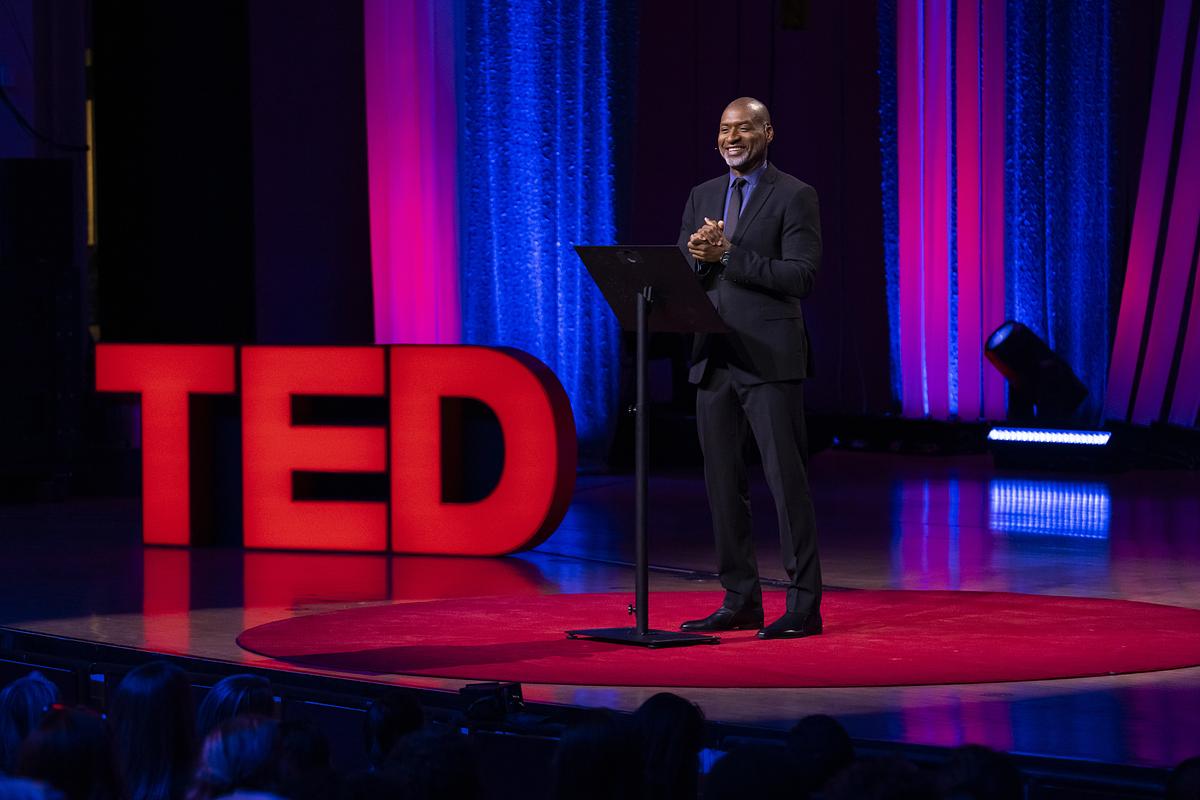
Writer Charles M. Blow speaks at Session 4 of TEDWomen 2023: Two Steps Forward on October 13, 2023, in Atlanta, GA. (Photo: Erin Lubin / TED)
Societal progress often feels like two steps forward, one step back — how do we change that? New York Times columnist Charles M. Blow calls for a peaceful, reverse migration of Black Americans to southern US states, to write over legacies of oppression and wield political power to change history.
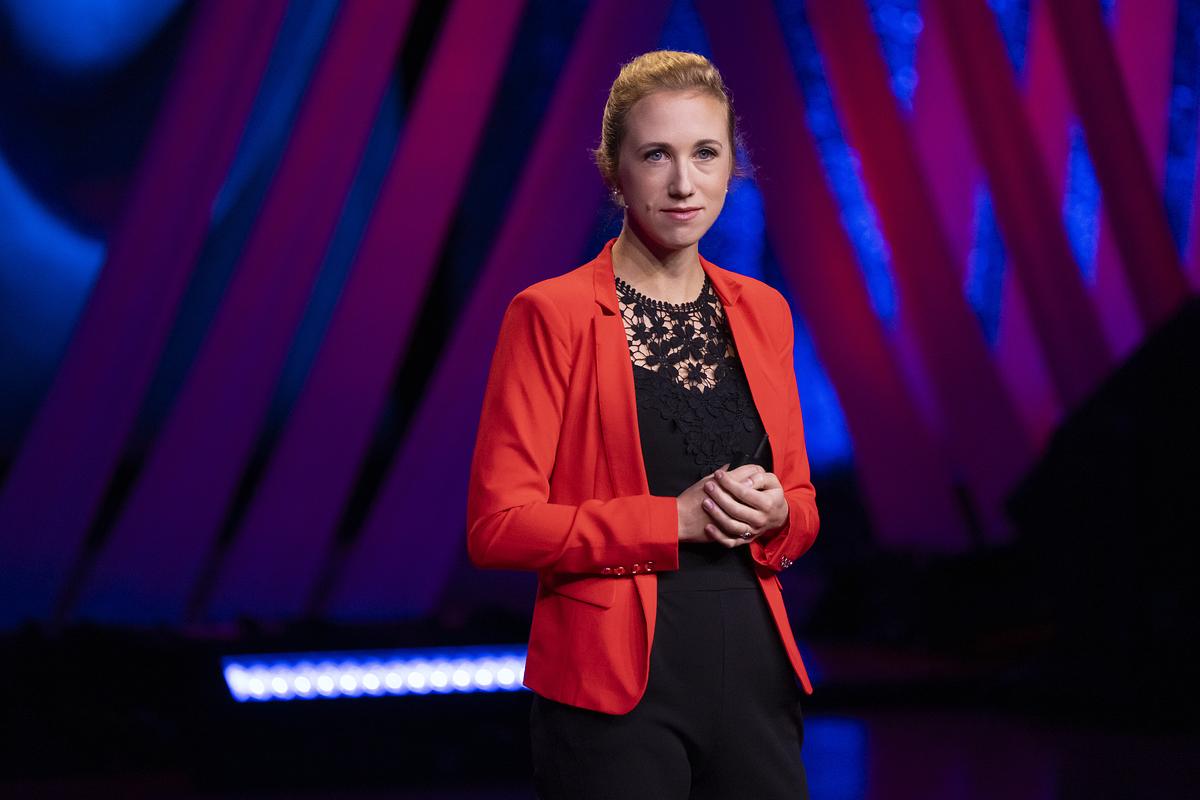
AI ethics researcher Sasha Luccioni speaks at Session 4 of TEDWomen 2023: Two Steps Forward on October 13, 2023, in Atlanta, GA. (Photo: Gilberto Tadday / TED)
We’ve all heard it recently: “AI could kill us all.” Instead of catastrophizing, AI ethics researcher Sasha Luccioni wants to address AI’s more pressing risks — like carbon emissions, copyright infringement and biased data — by creating tools and legislation that promote transparency.
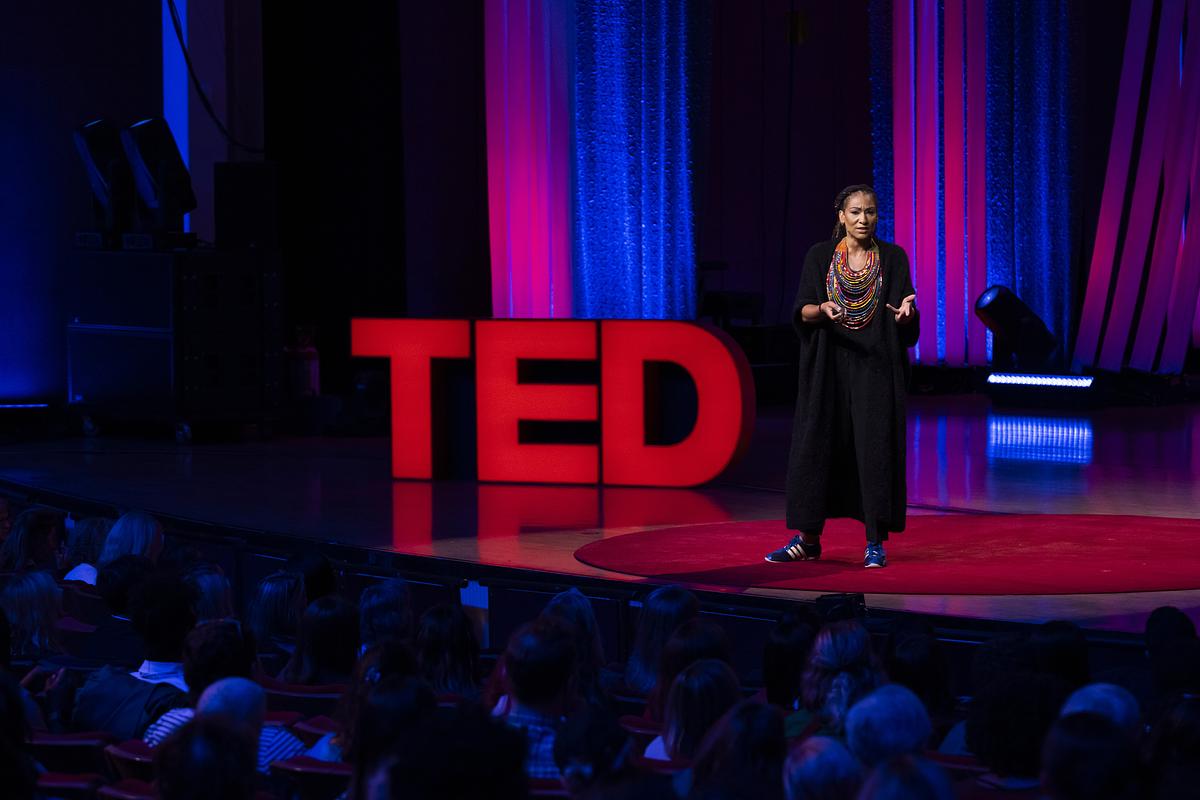
Innovation and equity researcher Ruha Benjamin speaks at Session 4 of TEDWomen 2023: Two Steps Forward on October 13, 2023, in Atlanta, GA. (Photo: Erin Lubin / TED)
In the era of superintelligent AI, are health care and housing for all really beyond reach? From the outcry against Atlanta’s “Cop City” to tech-driven democracy in Barcelona, researcher Ruha Benjamin imagines a future where tech and people-power work in tandem, not in opposition.
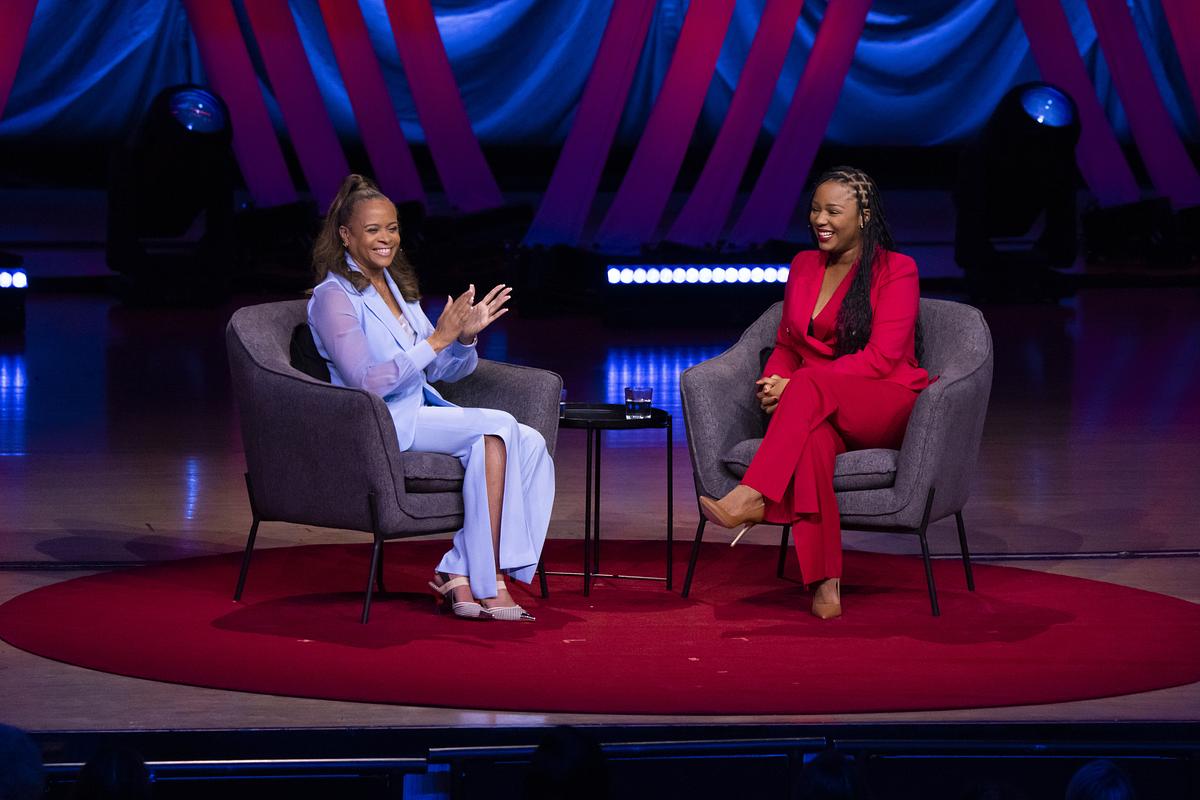
Google’s chief diversity officer Melonie D. Parker and TED Tech podcast Sherrell Dorsey speak at Session 4 of TEDWomen 2023: Two Steps Forward on October 13, 2023, in Atlanta, GA. (Photo: Gilberto Tadday / TED)
How can we create safe and inclusive work cultures for all? Google’s chief diversity officer Melonie D. Parker joins journalist and host of the TED Tech podcast Sherrell Dorsey in a nuanced conversation about creating a sustainably inclusive company where every employee can thrive.
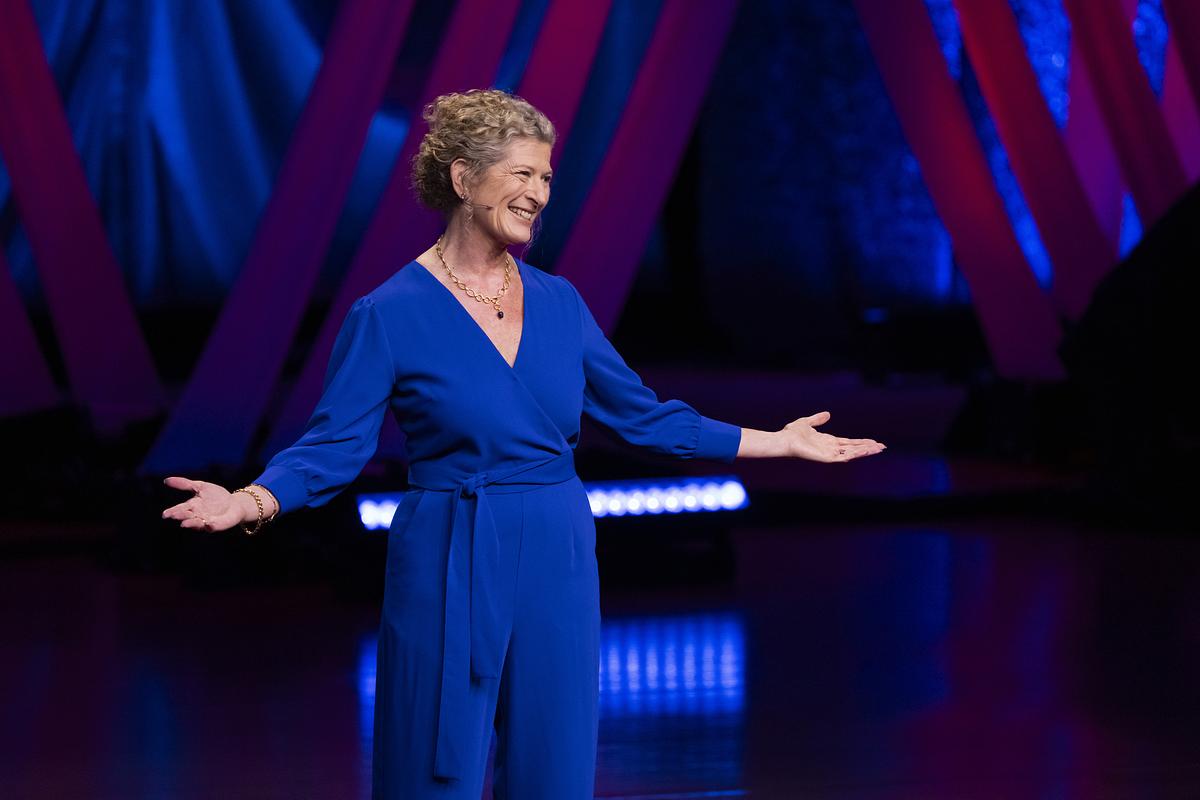
Author, journalist and broadcaster Mary Ann Sieghart speaks at Session 4 of TEDWomen 2023: Two Steps Forward on October 13, 2023, in Atlanta, GA. (Photo: Gilberto Tadday / TED)
We still take women less seriously than men, says author, journalist and broadcaster Mary Ann Sieghart. She explains how we can tackle what she calls the “authority gap” by questioning our biases against women’s intelligence (like judging a woman by the pitch of her voice) and actively promoting female experts.
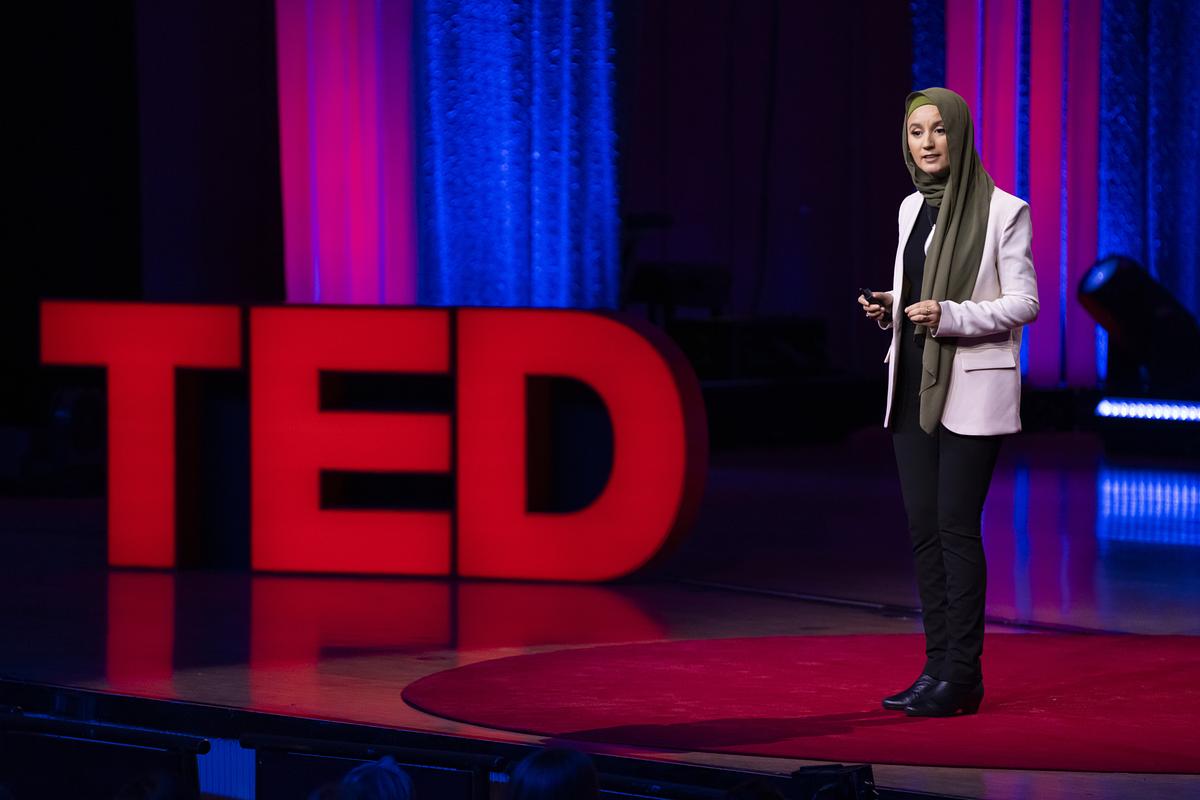
Maritime crime fighter Dyhia Belhabib speaks at Session 4 of TEDWomen 2023: Two Steps Forward on October 13, 2023, in Atlanta, GA. (Photo: Erin Lubin / TED)
Criminal groups use sophisticated technology to perpetrate crimes on the ocean: drug smugglers pilot autonomous submarines; pirates use satellites to detect ships they plan to capture and ransom. Maritime crime fighter Dyhia Belhabib introduces Heva, a tool that uses AI to aggregate international criminal records with the goal of detecting and stopping maritime crime.
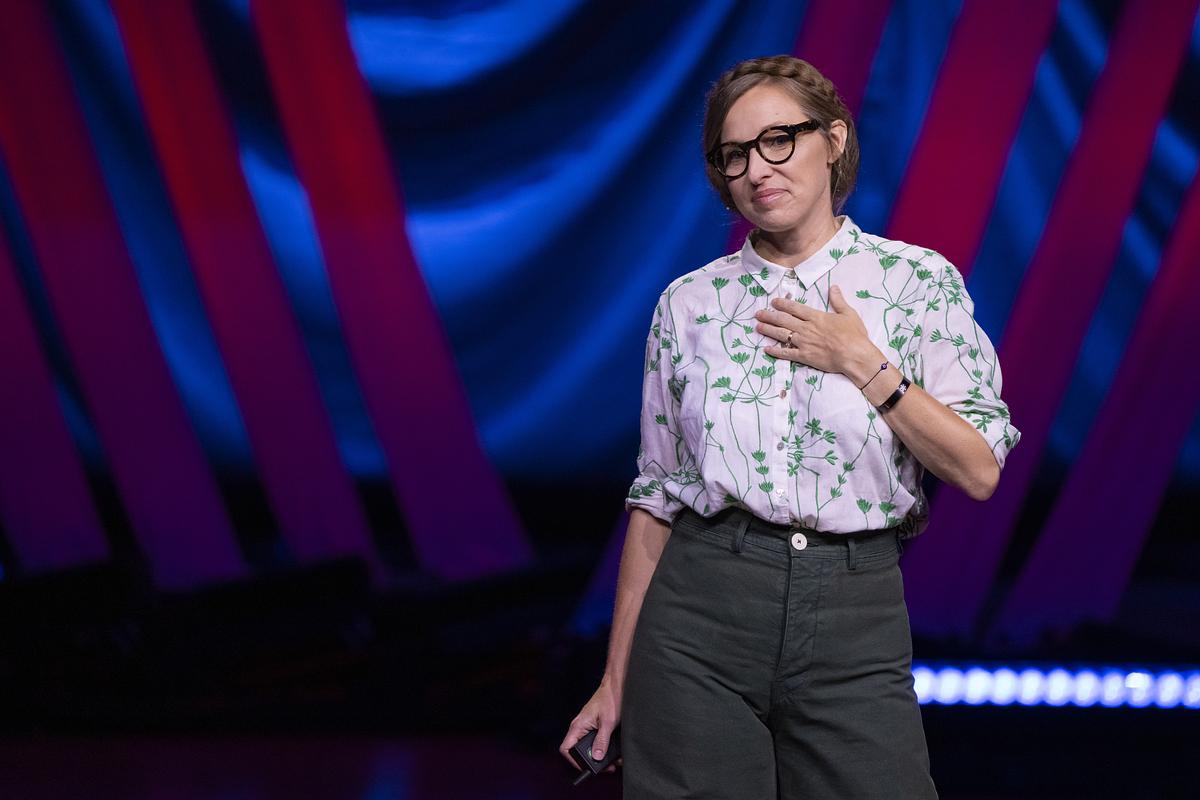
Ecologically obsessed horticulturist Rebecca McMackin speaks at Session 4 of TEDWomen 2023: Two Steps Forward on October 13, 2023, in Atlanta, GA. (Photo: Gilberto Tadday / TED)
Ecological horticulturist Rebecca McMackin explores the beauty of letting your garden run wild, surveying the success she’s had increasing biodiversity on the piers of Brooklyn Bridge Park and offering tips for creating wildlife-friendly habitats at home.
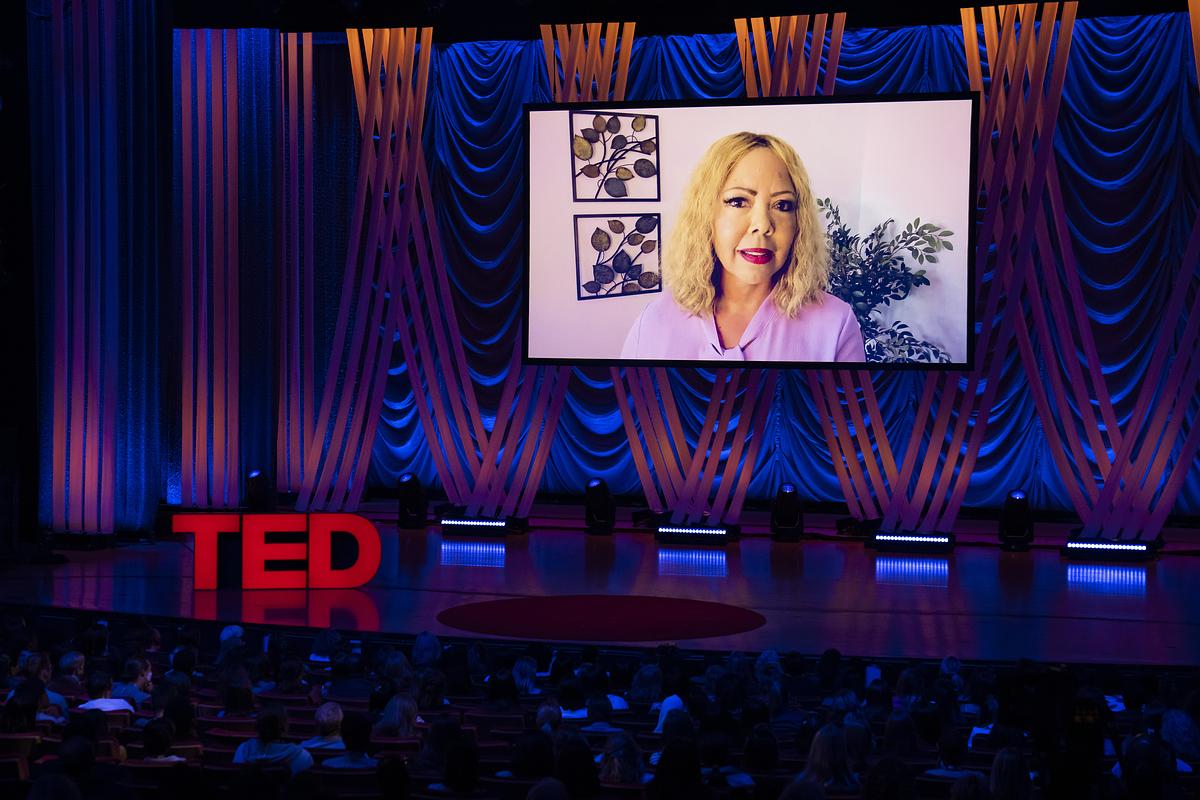
US Congresswoman Lucy McBath speaks at Session 5 of TEDWomen 2023: Two Steps Forward on October 13, 2023, in Atlanta, GA. (Photo: Gilberto Tadday / TED)
Following the death of her only son, US Congresswoman Lucy McBath was elected to office with one major goal: pass comprehensive gun safety legislation. She shares the power of a personal story to bridge divides and make real, impactful change.
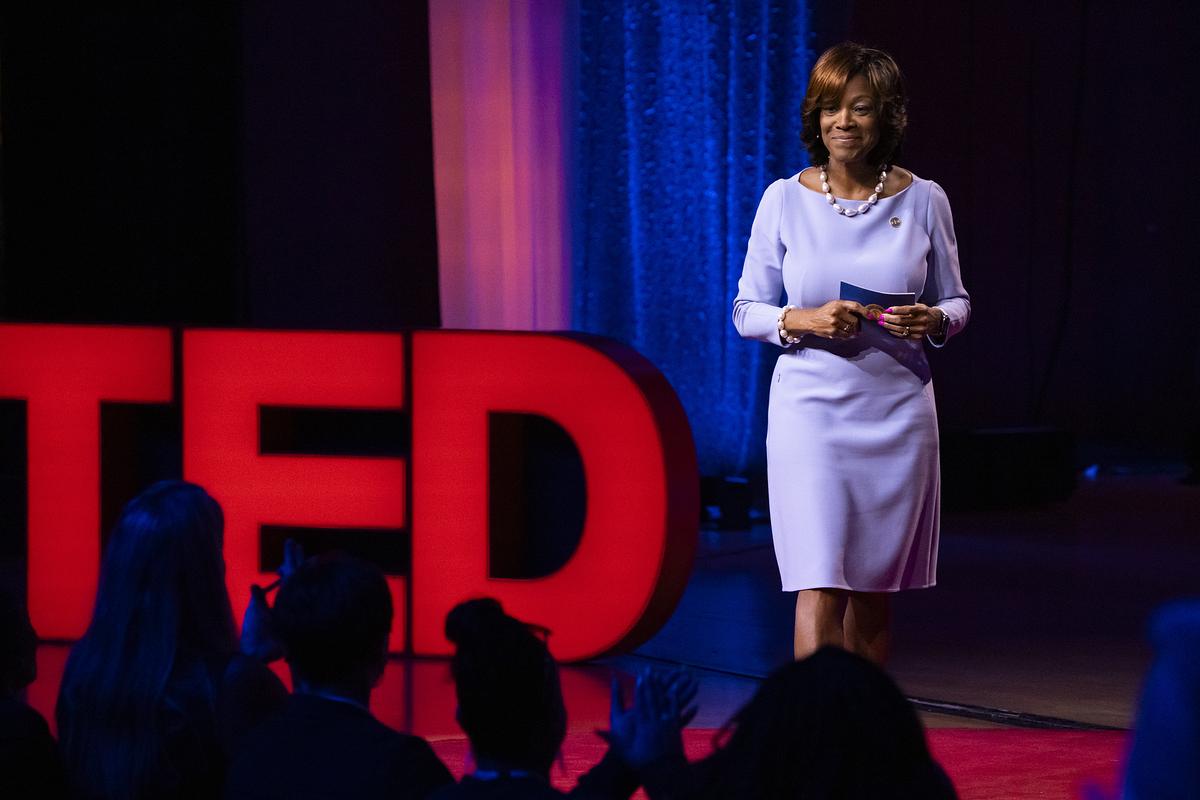
President and CEO of Morehouse School of Medicine Valerie Montgomery Rice speaks at Session 5 of TEDWomen 2023: Two Steps Forward on October 13, 2023, in Atlanta, GA. (Photo: Gilberto Tadday / TED)
“There are challenges and fears that catapult us to become the greatest versions of ourselves, to become great leaders,” says health equity advocate and president and CEO of Morehouse School of Medicine Valerie Montgomery Rice. She shares three lessons in leadership and shows how they can guide anyone hoping to break through fear, stand up for what’s right and build opportunity for all.
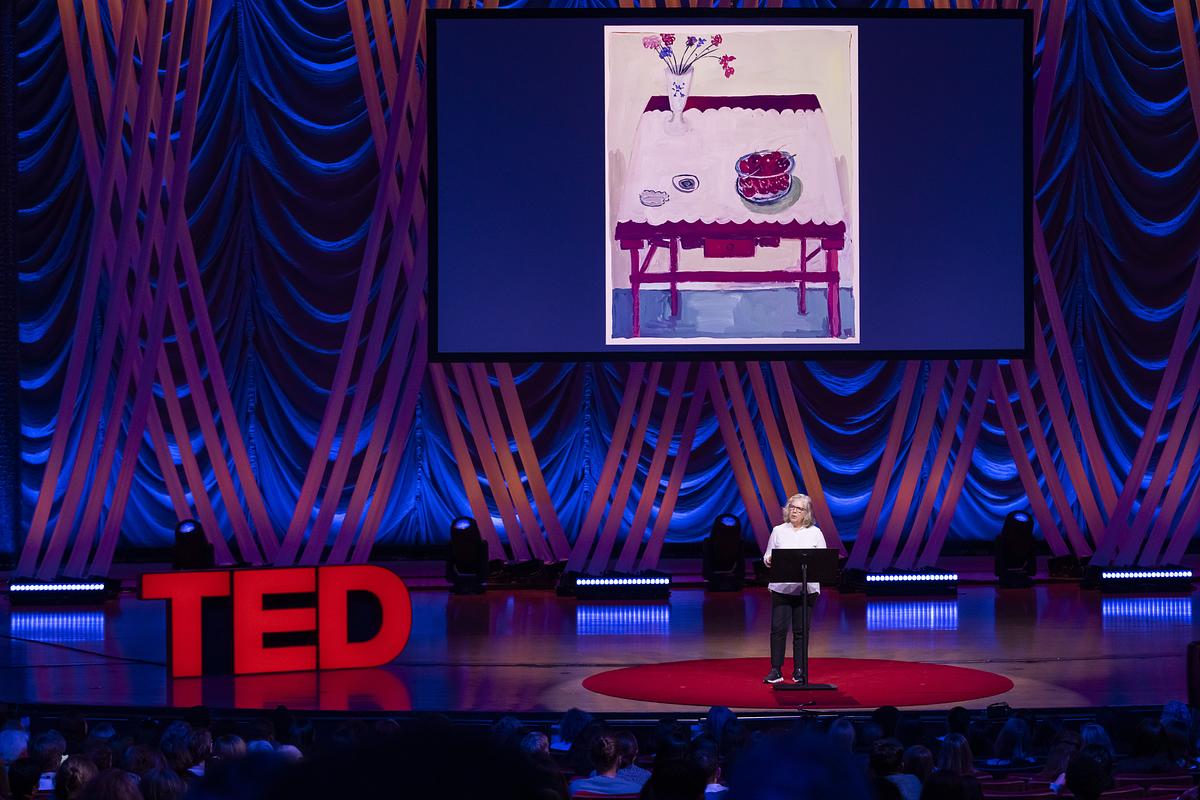
Multidisciplinary artist Maira Kalman speaks at Session 5 of TEDWomen 2023: Two Steps Forward on October 13, 2023, in Atlanta, GA. (Photo: Erin Lubin / TED)
Multidisciplinary artist Maira Kalman delivers a delightfully wry, sneakily profound reflection on time, death, work, art, family, dreams and more. Backed by her wise, witty illustrations, her talk seems to embody the entirety of life itself, in all its absurd glory.
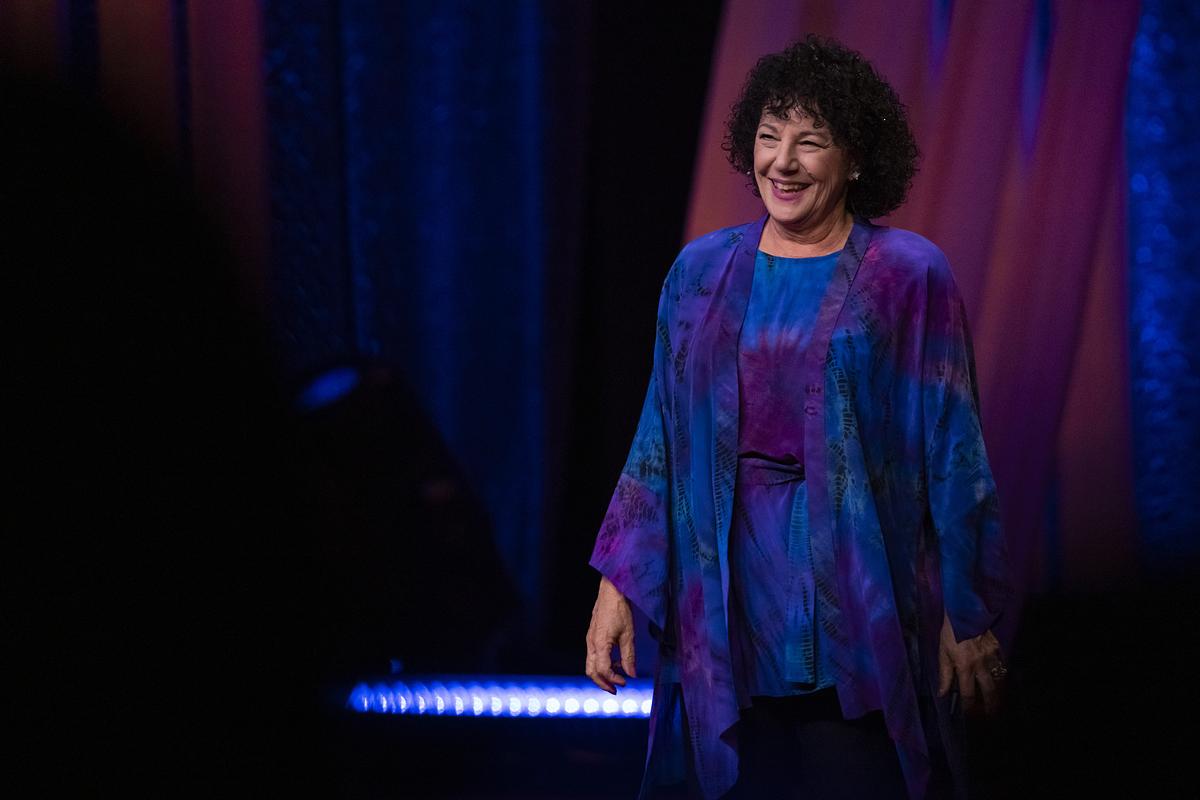
Impact investor Freada Kapor Klein speaks at Session 5 of TEDWomen 2023: Two Steps Forward on October 13, 2023, in Atlanta, GA. (Photo: Gilberto Tadday / TED)
Impact investor Freada Kapor Klein is building fairness into the core of tech companies. Her VC fund, Kapor Capital, only invests in businesses that commit to hiring diverse teams, fostering inclusive workplaces and creating products and services that close opportunity gaps.
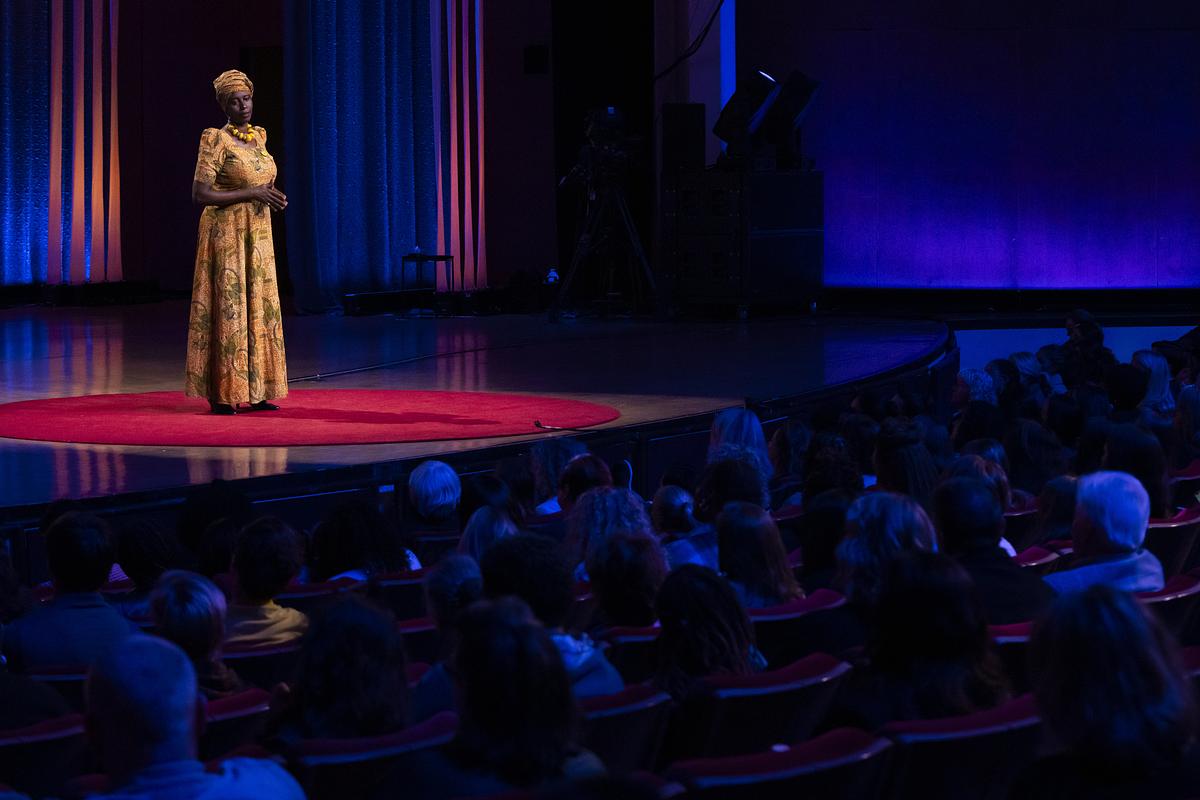
Energy equity expert Sheila Ngozi Oparaocha speaks at Session 5 of TEDWomen 2023: Two Steps Forward on October 13, 2023, in Atlanta, GA. (Photo: Erin Lubin / TED)
The dominant narrative of energy transition has a problem, says energy equity expert Sheila Oparaocha: it ignores the billions of people without energy access. For just and inclusive climate solutions, Oparaocha says we must empower women and prioritize universal access to sustainable energy.
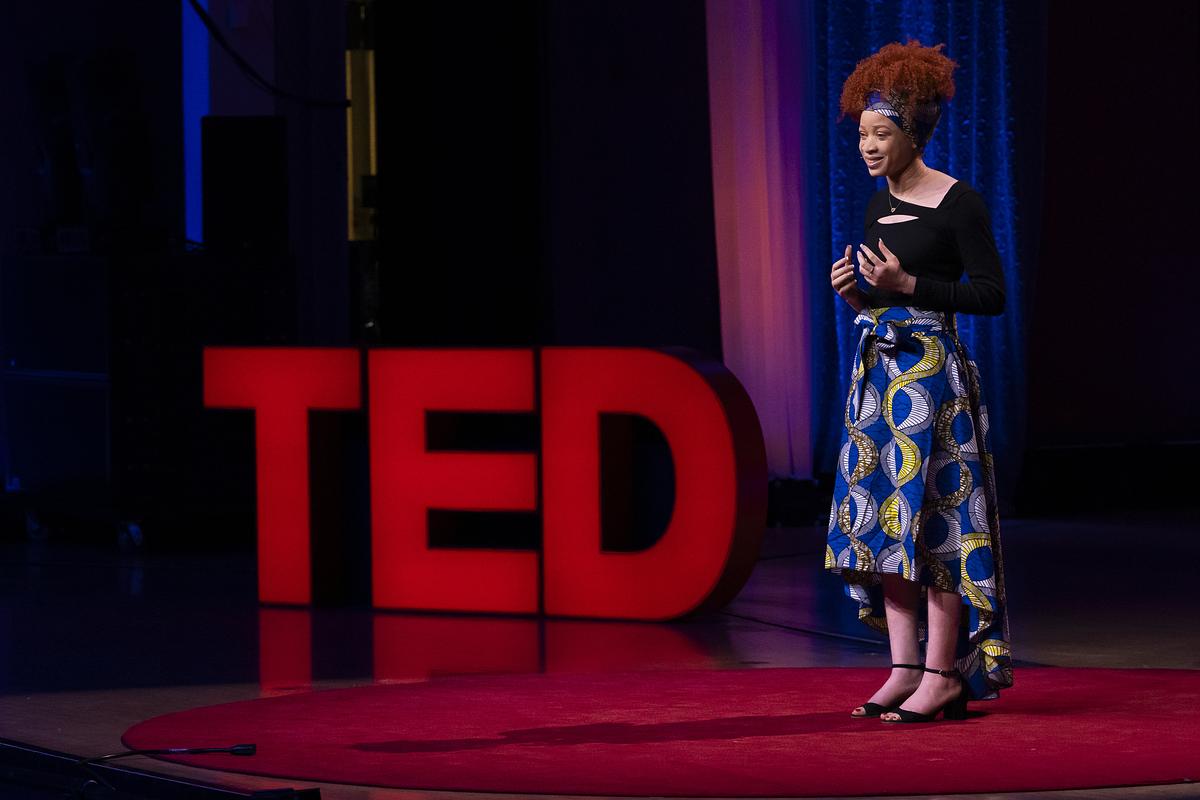
Refugee advocate Chantale Zuzi Leader speaks at Session 5 of TEDWomen 2023: Two Steps Forward on October 13, 2023, in Atlanta, GA. (Photo: Gilberto Tadday / TED)
After surviving devastating violence in the Democratic Republic of the Congo, Chantale Zuzi Leader found safety in the US. She urges everyone to consider the problem of displacement with curiosity and compassion — and offers refugees like her a powerful message of hope: “It is possible to break through.”